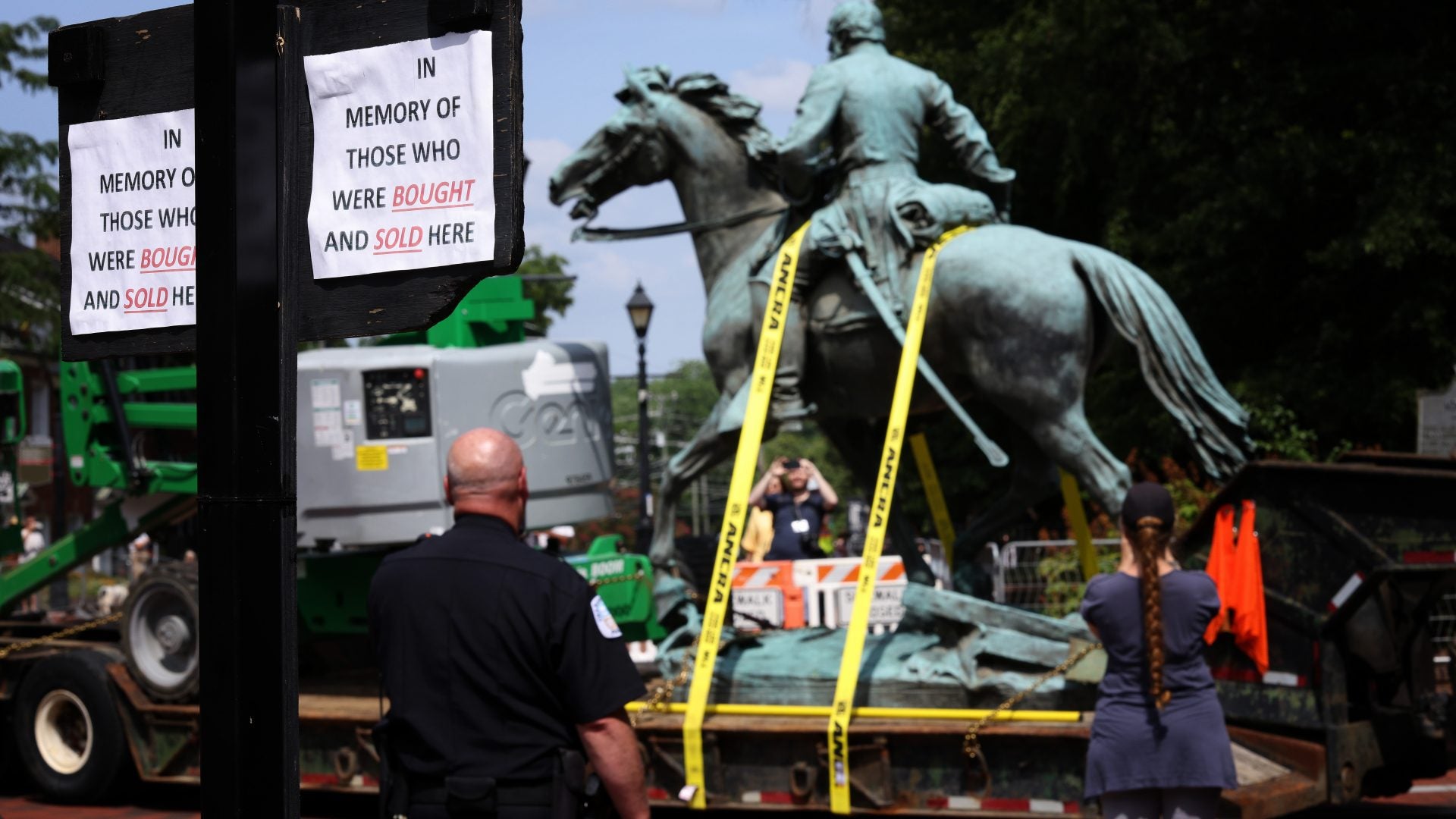
Confederate statues in Charlottesville, VA are once again at the center of attention, albeit this time on a less violent note.
On Saturday, Charlottesville officials approved the removal of several confederate statues after years of activism to remove them. A statue of Confederate general Robert E. Lee “was hoisted off its pedestal and strapped to a waiting truck,” the Guardian reports.
Hundreds of onlookers gathered around for this momentous occasion, and many of the bystanders subsequently headed over to also watch the removal of the Thomas “Stonewall” Jackson memorial. A couple hours after the first two statues were taken down, a special emergency meeting of the Charlottesville City Council ended with a decision to take down the Meriweather Lewis, William Clark and Sacagawea statue, and the third statue was also removed.
NBC reports, “Charlottesville Mayor Nikuyah Walker told reporters and observers in a speech near the monuments that the removal of the statues ‘is one small step closer to the goal of helping Charlottesville, Virginia, and America, grapple with the sin of being willing to destroy Black people for economic gain.’”
Overall, this was a joyous moment for many who have long opposed the statue’s continued presence—the Guardian recounts that University of Virginia associate professor of religious studies Professor Jalene Schmidt “said the statues, put up in the wake of the civil war to honor the leaders of the southern rebellion that aimed to maintain the enslavement of Black people, are ‘propaganda art, an attempt by white civic leaders to enshrine a view of the civil war that denied the humanity of Black people. They are a visual representation of white supremacy… Four years ago, I was teargassed by cops during the Klan rally, a bunch of my community members were injured, some permanently. We have literally shed blood, sweat, and tears over this.’”
Charlottesville came to prominence in 2017, when “chaos boiled over at what is believed to be the largest group of white nationalists to come together in a decade,” the Associated Press reported. The governor declared a state of emergency amid the “Unite the Right” rally, which gathered to protest plans to remove Gen. Robert E. Lee’s statue.
Ultimately, the nation witnessed a reckoning around this polarizing issue between the far-right and the rest of the country, which also left dozens injured, with some fatalities, and it was “further inflamed by former President Donald Trump’s insistence that there was ‘blame on both sides.’”
While the debate for removing Confederate statues has been ongoing for some time, the most recent drive for Charlottesville began in 2016, in part after a Black high school student, Zyahna Bryant, started a petition to remove the Robert E. Lee monument. City Council then voted to remove the statue, and a lawsuit was promptly filed as white supremacists started to fixate on this issue. This initiative was stalled for the past five years due to a protracted legal fight accompanied by changes to a state law, which safeguarded war memorials.